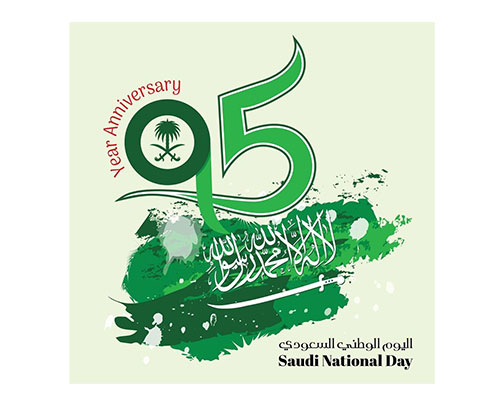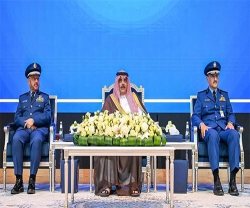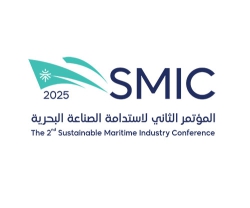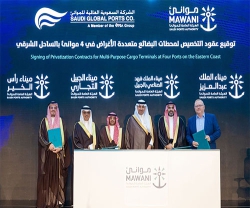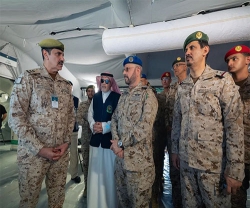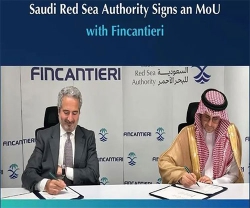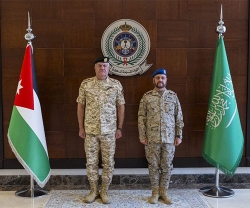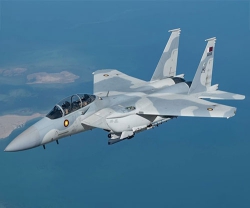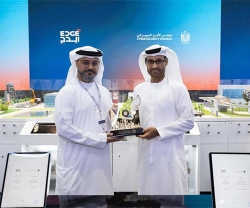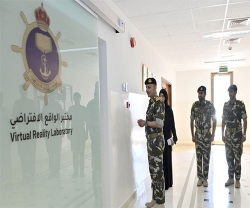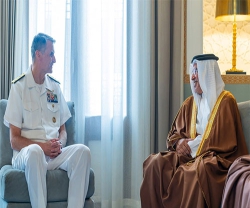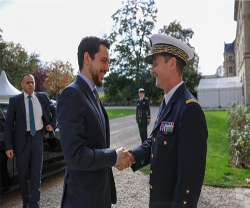On Tuesday, September 23, 2025, the Kingdom of Saudi Arabia, its leadership, and its people will celebrate the 95th National Day under the slogan “Pride in Our Nature.”
This day marks a significant historical milestone: the unification of the country. It commemorates the royal decree issued by King Abdulaziz bin Abdulrahman Al Saud on September 23, 1932, which officially renamed the country the Kingdom of Saudi Arabia, the Saudi Press Agency (SPA) reported.
A Legacy of Development and Global Leadership
As the Kingdom celebrates its 95th year, it continues its remarkable journey of progress, building on the foundation laid by King Abdulaziz. Guided by the ambitious Saudi Vision 2030 and led by Custodian of the Two Holy Mosques King Salman bin Abdulaziz Al Saud and His Royal Highness Prince Mohammed bin Salman bin Abdulaziz Al Saud, Crown Prince and Prime Minister, the nation is advancing confidently on the path of sustainable development.
Over decades, Saudi Arabia has solidified its international standing, becoming a leading model for economic and social renaissance. The nation's identity, rooted in the principles of the Holy Quran and the Sunnah, has enabled it to achieve unprecedented growth and innovation. National Day is a powerful symbol of pride and belonging, reinforcing the deep sense of loyalty felt by citizens, residents, and visitors alike as they witness a comprehensive transformation in quality of life, infrastructure, and global influence.
The Visionary Founder: King Abdulaziz Al Saud
The celebration also serves as a time to honor the life of King Abdulaziz, who dedicated himself to unifying the Arabian Peninsula. At a time of conflict and hardship, he brought peace and prosperity, laying the groundwork for a secure and resource-rich nation. The turning point in this journey was the recapture of Riyadh on January 15, 1902, an event that marked the beginning of the unification process.
After uniting the various regions, King Abdulaziz consolidated his power and, driven by popular demand, formally unified the name of the state. Following extensive consultations with the public, the name was officially changed from the “Kingdom of Hejaz and Najd and its Dependencies” to the Kingdom of Saudi Arabia.
King Abdulaziz’s character was shaped by his father, Imam Abdulrahman bin Faisal, and his mother, Princess Sarah Al-Sudairi. He was known for his commanding yet humble and cheerful demeanor. His return to Riyadh in his twenties, a heroic journey with his men, culminated in the restoration of order and the establishment of a unified government. This laid the foundation for Riyadh's growth and cultural prosperity.
Building a Nation: From Unification to Modernization
King Abdulaziz’s foresight extended beyond unification. He prioritized the expansion and service of the two holy mosques, established schools and hospitals, and initiated agricultural development. These ambitious projects required funding, leading to the search for oil. In 1938, after years of unsuccessful exploration, oil was finally discovered, sparking a transformation of the desert landscape into a hub of industry and innovation. The first oil pumping in 1939 marked the beginning of a new era of national development.
Internationally, King Abdulaziz established a foreign policy based on independence and mutual respect, earning him admiration from global leaders. His legacy is one of a nation founded on principles of consultation and mutual advice, a practice continued by his sons.
Successive Reigns: A Path of Continuous Progress
Each of Saudi Arabia’s subsequent rulers built upon the foundations laid by King Abdulaziz. King Saud initiated the official work of the Cabinet and established key ministries. King Faisal championed Islamic solidarity and implemented ambitious five-year development plans, playing a prominent role in supporting Arab causes. King Khalid oversaw a major economic renaissance and focused on infrastructure, agriculture, and public services. King Fahd enacted significant legislative reforms, including the Basic Law of Governance, and oversaw major expansions of the two holy mosques. King Abdullah continued the path of development, approving the Allegiance Council system and granting women participation in the Shura Council.
King Salman has continued administrative and social reforms, with a strong focus on empowerment for Saudi women and the launch of Vision 2030, solidifying the Kingdom’s position as one of the world’s top 20 economies.
Recent Milestones: A Nation on the Rise
In the past year alone, the Kingdom has achieved remarkable accomplishments. In diplomacy and security, it hosted the extraordinary Arab-Islamic Summit and facilitated crucial security talks between nations.
On the development and economy front, it inaugurated the Riyadh Metro, launched the National Red Sea Sustainability Strategy and established the Global Water Organization in Riyadh.
In sports and culture, the Kingdom won the bid to host the 2034 FIFA World Cup™ and hosted the 2025 Esports World Cup.
In innovation and technology, Saudi Arabia was ranked first globally in the ICT Development Index 2025 and won the Grand Prix at the Geneva International Exhibition of Inventions.
For humanitarian efforts, the nation continued its role as a leading global donor through the King Salman Humanitarian Aid and Relief Center (KSrelief). King Faisal Specialist Hospital performed the world's first robotic heart transplant.
On the social front, HRH the Crown Prince made a personal donation of SAR1 billion (US$750 million) to support the National Developmental Housing Foundation (Sakan).
These achievements underscore the Kingdom’s unwavering commitment to progress and its ambitious vision for a prosperous future.

